Palmer Luckey's Time Magazine cover goes viral (2015)
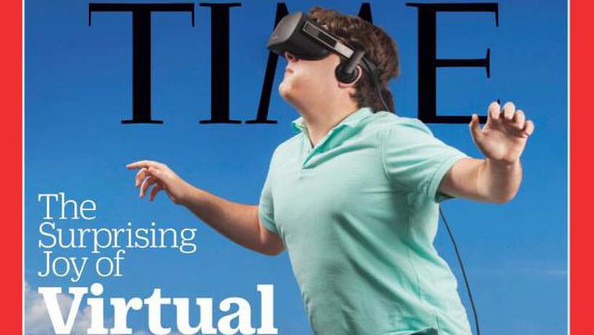
I'm not saying this magazine cover is the single reason that VR didn't blaze out of the gates, but man did it sum up some of the awkward growing pains for Oculus. There is Palmer Luckey, at the peak of his powers, floating shoeless on a digital beach with his mouth disconcertingly open. It was… weird. Time clearly wanted to illustrate the promise of VR, but they did so in the cringiest possible way. Luckey would later get cozy with r/TheDonald and find himself ousted from Oculus, which makes this cover awkward for a whole different set of reasons. — Luke Winkie
Windows 10 gets Microsoft back on track (2015)
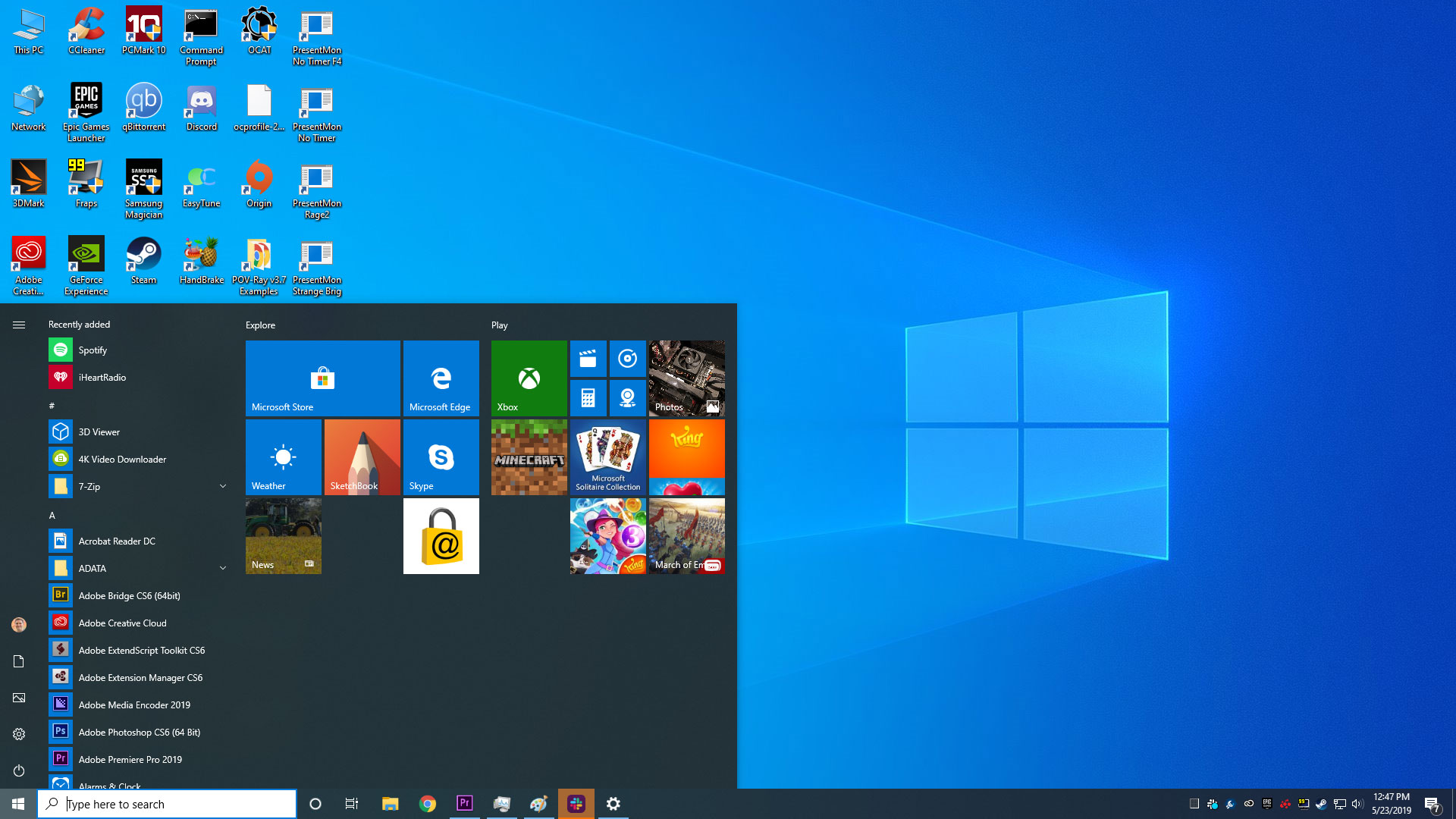
Windows 10 marked a major change in strategy for Microsoft. The company gave away the OS for free for the first year after its release, and has since followed a twice per year major features update cadence. It may not be perfect, but Windows 10 is the best gaming OS around. Part of that is thanks to Microsoft's commitment to release all first-party Xbox games simultaneously on Windows 10. DirectX 12 has also paved the way for more complex games with improved graphics, including DirectX Raytracing. The Microsoft Store isn't great, nor is the data mining of users, but most of us can overlook those areas for the sake of gaming. Will there ever by a new version of Windows not called Windows 10? Perhaps, but OS X has been kicking out new versions for nearly 20 years, and Microsoft looks ready to follow a similar course. — Jarred Walton
SimCity falters and Paradox steps in (2015)
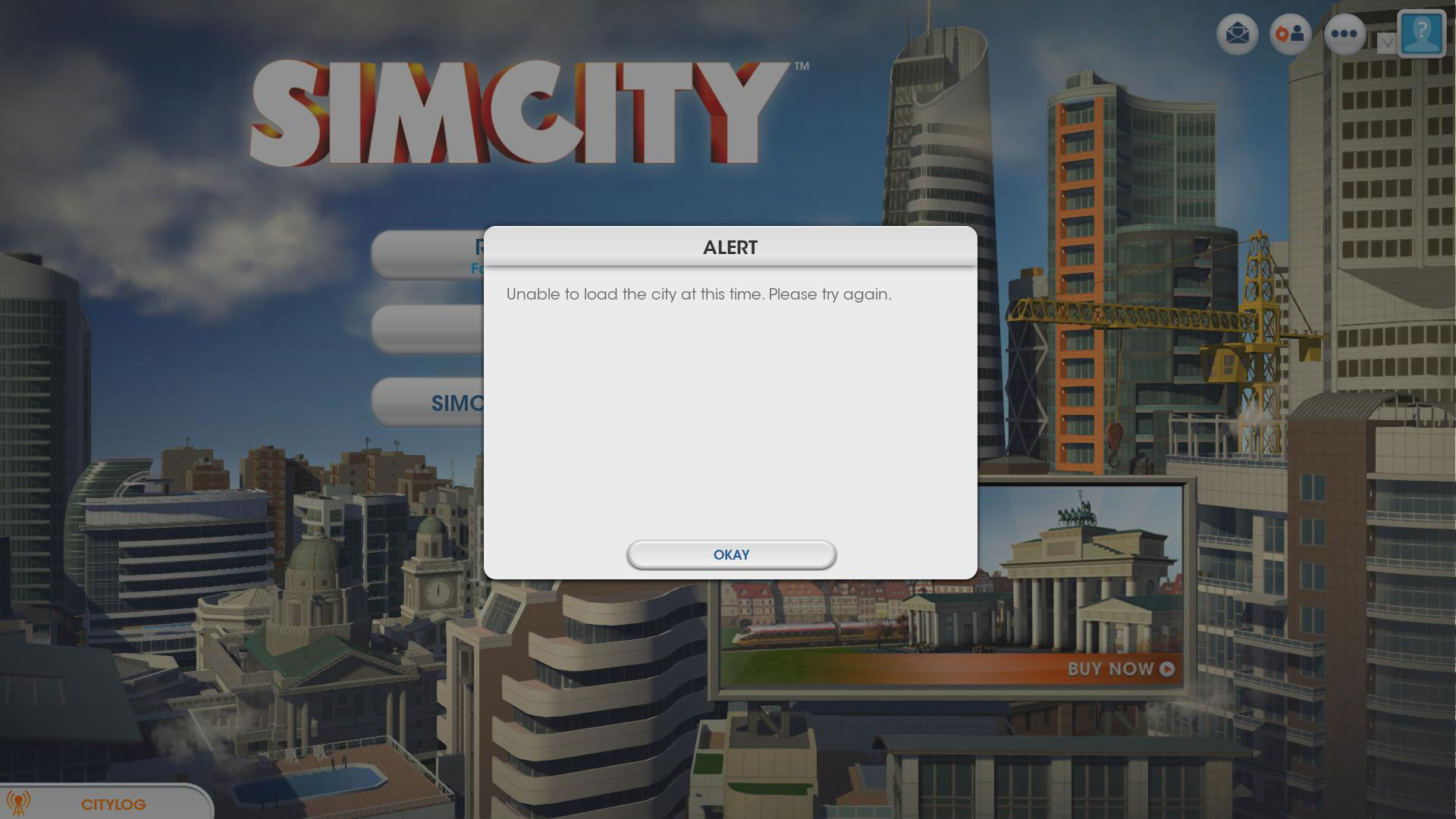
The last SimCity had two problems: it was always-online, and its simulation fell apart too easily under scrutiny. I still don't think it was as bad as some made out—breaking the behavior of its confused little people was part of the fun for me—but the online component just wasn't all that interesting, and requiring it was annoying. Enter Paradox with Cities Skylines, an offline, moddable alternative that proved to be what SimCity fans actually wanted. Sadly, Maxis Emeryville was shut down in 2015, and it feels unlikely we'll get any more games from the studio outside of The Sims. — Tyler Wilde
Shirley Curry becomes PC gaming's adopted grandmother (2015)
Shirley Curry is the Mr. Rogers of our generation. What started as a fun side project making Skyrim Let's Plays turned into Grandma Shirley becoming a rare source of encouragement, positivity, and old fashioned neighborly love. Whether she's reading Skyrim's in-game books or roleplaying a new character, Shirley's videos are disarmingly charming, but what really matters is the way works to make each viewer feel like family. Despite what an enormous burden being a YouTuber can be, Shirley doesn't squander the opportunity to spread love and joy, and we in turn love her all the more for it. — Steven Messner
G-Sync changes smooth framerates forever (2015)
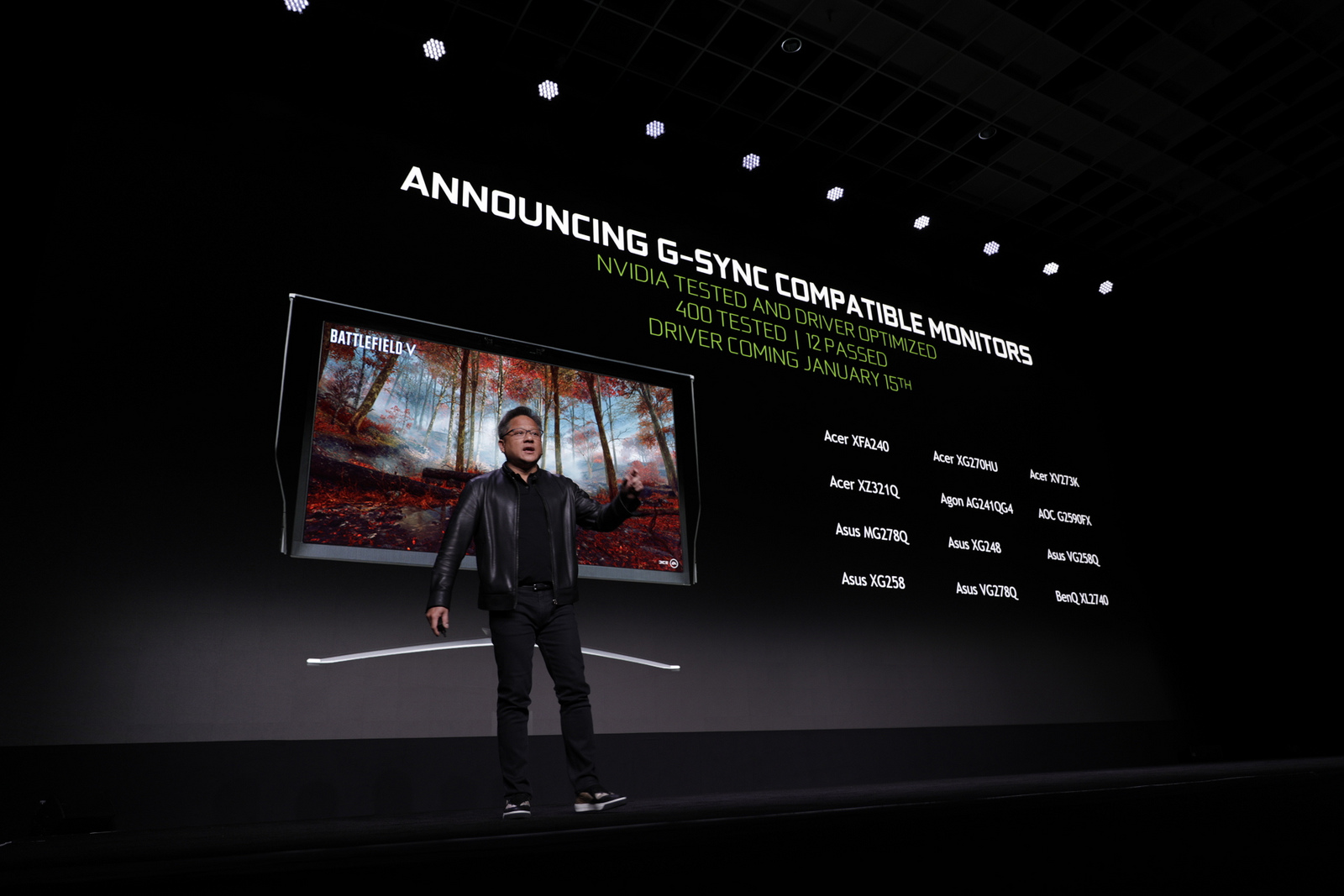
The biggest technological improvement this decade has to be variable refresh, which ties a monitor's refresh rate to the output of your video card. Nvidia made the biggest splash with G-Sync, which was a pricey proprietary implementation. It was worth the cost, eliminating tearing and stuttering we'd dealt with for so long. Goodbye, V-Sync, you old has-been! We've got something better now. The popularity of G-Sync and AMD's adoption of FreeSync, the open source competition, also spurred a huge rise in high refresh rate monitors. We started the decade being all about 1080p, 60 fps. As we end it, we consider 144 Hz the new standard. And it's so, so smooth. — Wes Fenlon
We brought the PC Gaming Show to E3 (2015)
I've been going to E3 since I was in college, and through those years, it was kinda weird that PC gaming never had a splashy presence at Earth's biggest video game spectacle. It got even weirder as PC gaming reemerged as the most vibrant and popular gaming platform in the last decade, and in 2015 we decided to stop joking around and just do it ourselves.
We've learned a lot in the years that've followed—putting on a live event takes months of work from dozens of people—but hopefully we've been able to celebrate our hobby a little and shine a spotlight on the good things happening in it, with a little help from our friends Day[9] and Frankie Ward. — Evan Lahti
Keep up to date with the most important stories and the best deals, as picked by the PC Gamer team.
Steam launches paid modding with Skyrim and it goes horribly wrong (2015)
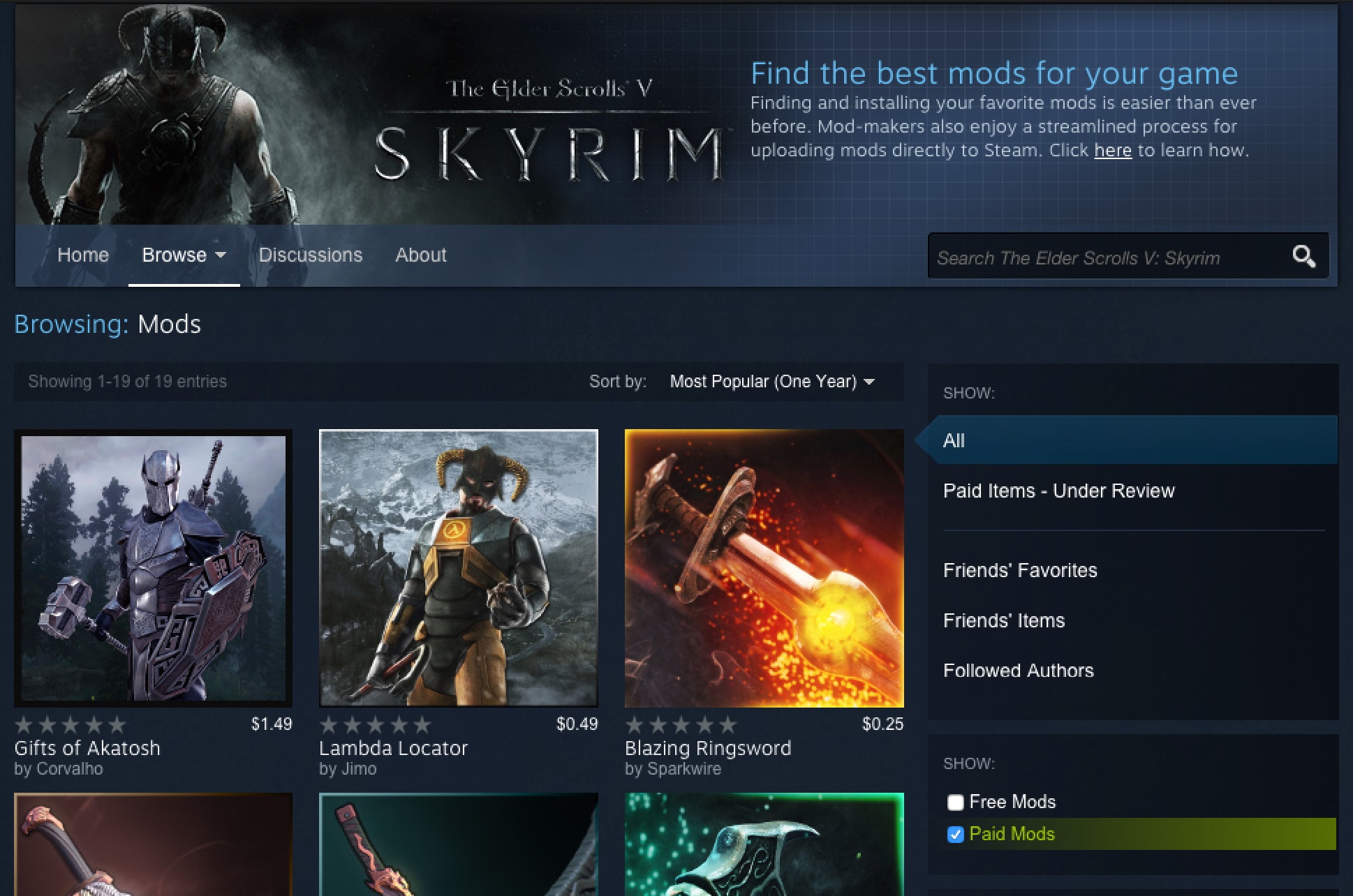
This never had a chance. First, Valve and Bethesda unveiled a paid mods system with zero warning—you have to prep people when you're going to start charging them for something, you can't just spring it on them (a lesson Bethesda still hasn't learned—see Fallout 1st). Valve took a 30 percent cut of the mod sales because I guess they didn't have quite enough money already, and Bethesda took a 45 percent cut despite mods extending the life of their games by years and thus already leading to more money through sales.
It wasn't smooth sailing for modders, either: Mods that weren't the sole work of one modder were being uploaded and sold, a thorny problem in a largely collaborative community. And on top of all that, many gamers simply (and wrongly) feel mods should always be 100 percent free, because why should a modder earn money just for months or even years of hard work? Poor planning, pointless greed from both Valve and Bethesda, angry gamers… this was a complete disaster and the whole thing quickly collapsed. — Chris Livingston
The Witcher 3 turns out to be ridiculously good, despite its graphical "downgrade" (2015)
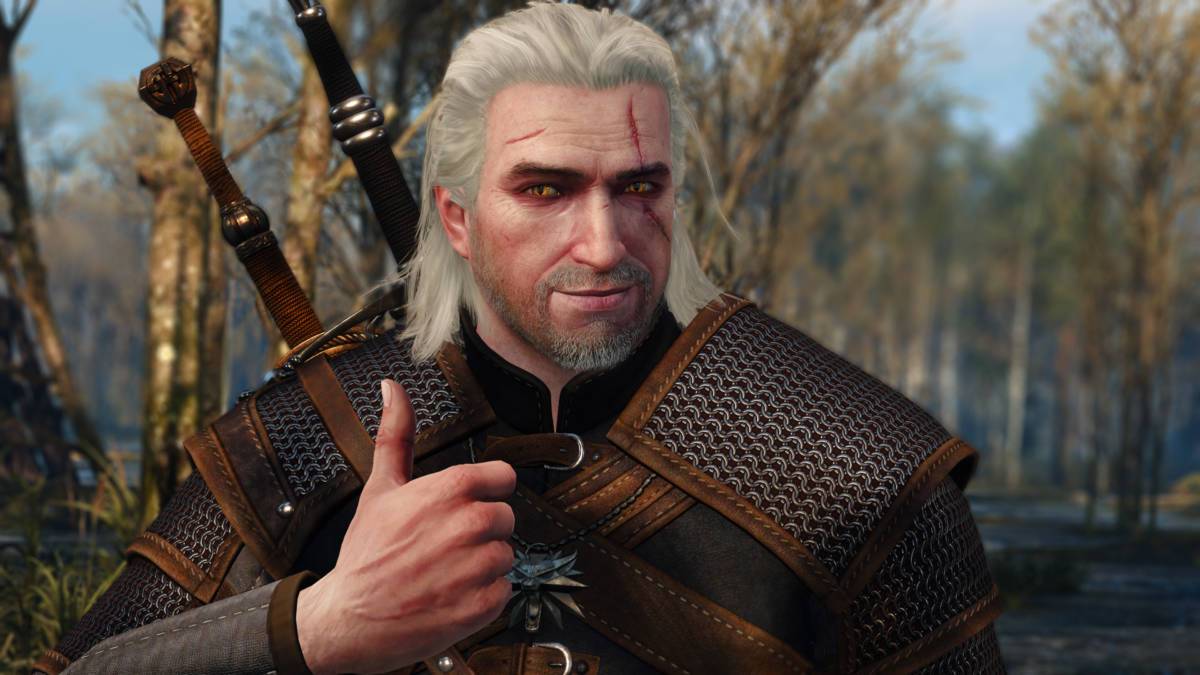
Hype for The Witcher 3 was through the roof in 2015, and yet it somehow managed to exceed expectations. The third game in a series many people had never heard of became a phenomenon, and it took months for us all to really appreciate how many great quests it contained, how smart and creative its writing was, and how much of the game managed to hit that high bar. It's hard to remember now that on release, discussion around The Witcher 3 was dominated by furious gamers criticizing the graphics and lighting, which were inferior to what we'd seen in trailers before release. It was an all-consuming shitstorm, and ultimately a good lesson not to believe everything you see in marketing. When that anger eventually fizzled out, we all got to realize we were playing the best RPG of the decade. — Wes Fenlon
Batman: Arkham Knight is such a disaster on PC it gets pulled from sale (2015)
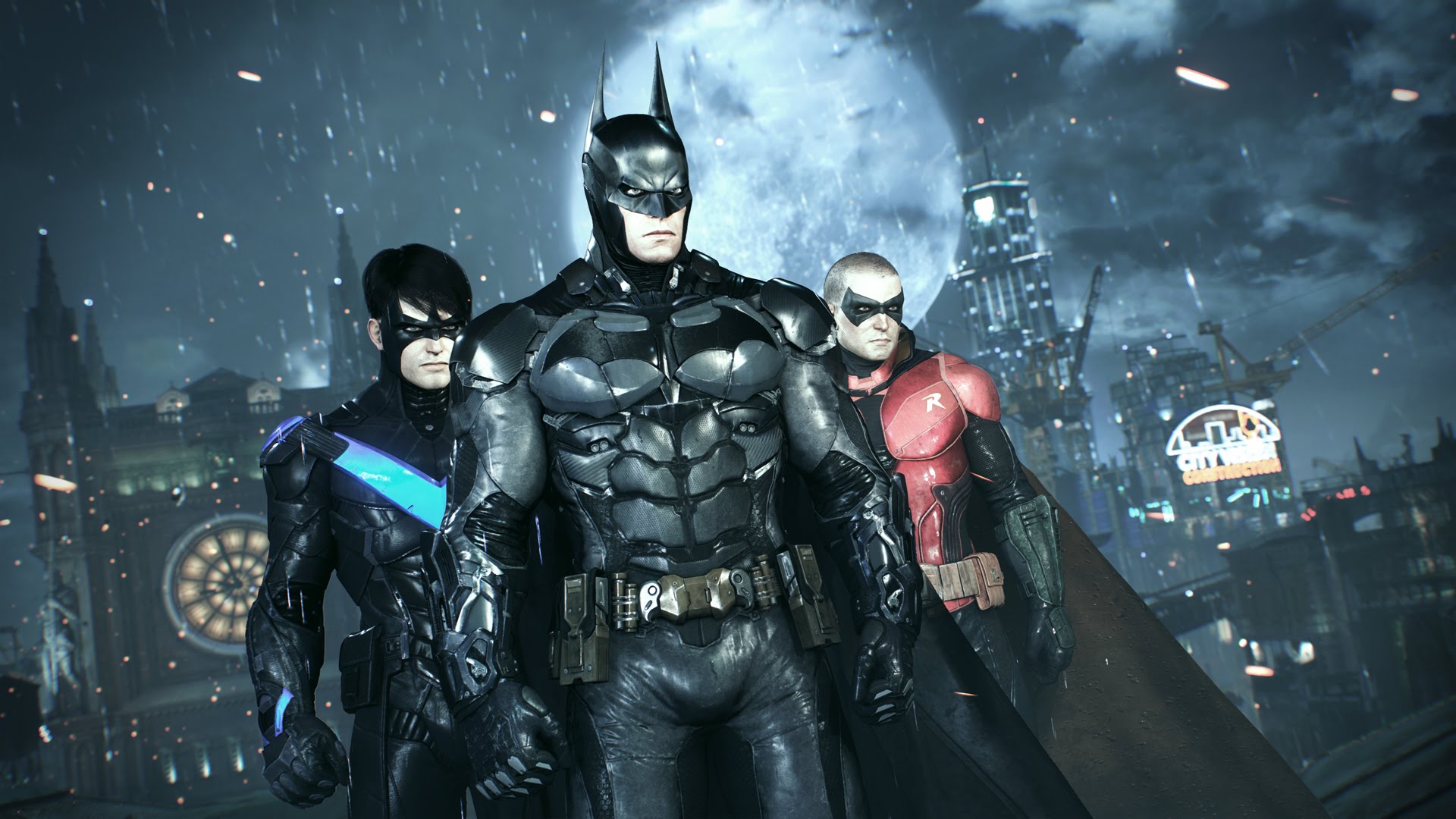
Arkham Knight was one of the worst PC game launches of the decade—so bad that its sales were suspended in June 2015 while fixes were made. Pulling a broken game is a rarity today (powering through with rapid patches is the norm), and might have had something to do with a shift in Steam policy at the time: The distributor's current rules around refunds had taken effect just before Arkham Knight released, and it was likely getting hammered with returns. (Warner Bros also made a point of offering refunds for anyone who purchased it.) When Arkham Knight went back on sale, it was in a better state, and managed a 70% in our review. While more sloppy PC releases would follow—Dishonored 2 comes to mind—Arkham Knight set a low bar that might never be limboed under again. (Admittedly, that's an optimistic outlook.) —Tyler Wilde
A new Doom comes out and owns, actually (2016)
I don't think anyone outside of id—including publisher Bethesda—realized how good the 2016 Doom actually was. A couple years before there'd been talk of trouble inside the studio, which hadn't released a game since Rage in 2011. And in the leadup to release, we mostly got to play the admittedly meh multiplayer mode. The buzz wasn't great. But then Doom came out, with a middle finger raised to the last 20 years of shooter innovations like reloading, slowing down, and having a story, and it unequivocally kicked ass. As Chris Thursten put it in our Game of the Year awards: "This is an absurd power metal knee-slide of a thing, gloriously content to be metal as fuck when nobody else is even trying." — Wes Fenlon
Stardew Valley starts a farming phenomenon (2016)
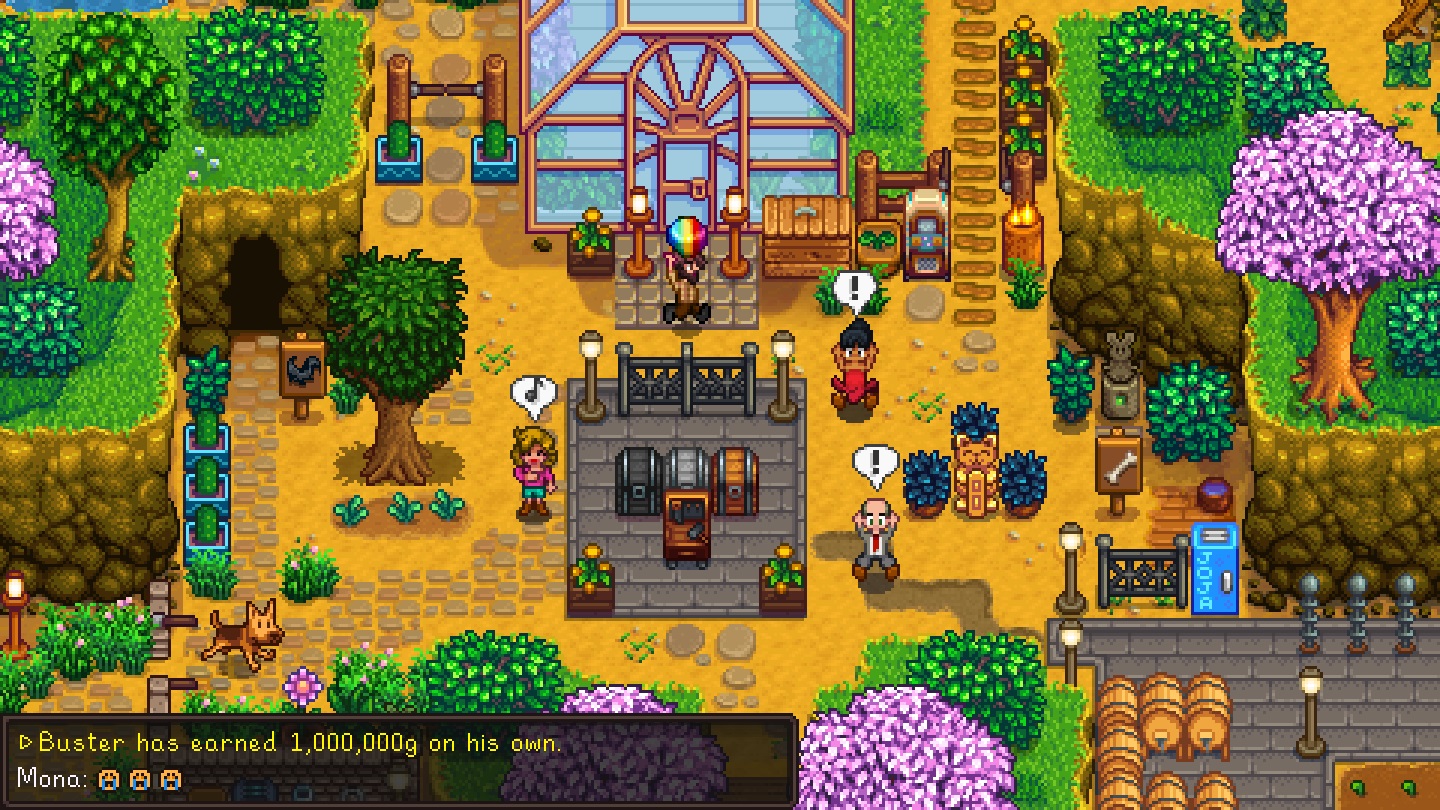
When Eric Barone began creating the game that would become Stardew Valley—which originally had the less-magical name Sprout Valley—it was partly so the unemployed programmer would have something for his portfolio, and partly just to prove to himself that he could. The simple Harvest Moon clone he planned to squeeze out in six months grew into something bigger, and ended up consuming his life for five years.
When he released Stardew Valley on Steam in 2016 it quickly became a hit, selling over a million copies in its first months. Turns out there was a huge untapped market for farmlife sims among players who'd either been dissatisfied with the recent Harvest Moon and Animal Crossing games or, since they weren't ported to PC, never played them. The soothing repetition of agriculture combined with wholesome villager interactions and occasional trip down a mine to kill slimes—just for variety—was a winning formula. It inspired a wave of farmlife sims on PC, like My Time at Portia, Graveyard Keeper, Atomicrops, Slime Rancher, Verdant Skies, Re:Legend, and plenty more. — Jody Macgregor
Very stoned Jamie Foxx and Zac Efron promote Battlefield 1 at WEED3 (2016)
Here at video games, we have a long tradition of dragging celebrities onto a stage to halfheartedly represent an upcoming game, but we submit that there is none greater than EA’s live celebrity Battlefield 1 tournament that followed its E3 press conference in 2016. Particularly, the pre-match interviews with recently-stoned Jamie Foxx, Zac Efron, and Snoop Dogg.
Every morsel of it was absolutely perfect, from Jamie Foxx stepping into frame still coughing from his last drag to Zac Efron sweating profusely as he tries to stay engaged in the conversation. Snoop, who was interviewed before the pair, handled his high like a gosh darn professional. In the midst of new Battlefield 1 gameplay, a camera cut to Snoop revealed that he was playing with a rolled joint in his mouth. Hands free, mind high. In the years since, Snoop has become a regular Twitch streamer. Last year he 'played' an online survival game as he smoked and occasionally freestyled. What a time to be alive. — Morgan Park
Roleplaying finds new life in survival games and GTA Online (2017)
Perhaps it was inevitable that streaming would lead to this, but it still came as some surprise. Roleplaying, once the domain of message boards and tabletop and games like Neverwinter Night, first flourished on in-character MMO servers before spreading to less-obvious game genres this decade. Some of Twitch's biggest stars gravitated to popular GTA Online servers to play as cops or robbers or regular old joes just trying to get by. Meanwhile, it's gotten downright Lord of the Flies in survival games like Rust, and one of our own writers was forced into involuntary karaoke in a particularly strange Ark: Survival Evolved RP experience. The rise of Twitch and chat platform Discord have helped these sorts of communities flourish. — Wes Fenlon
Battlefront 2 ignites a controversy around loot boxes, makes Reddit history (2017)
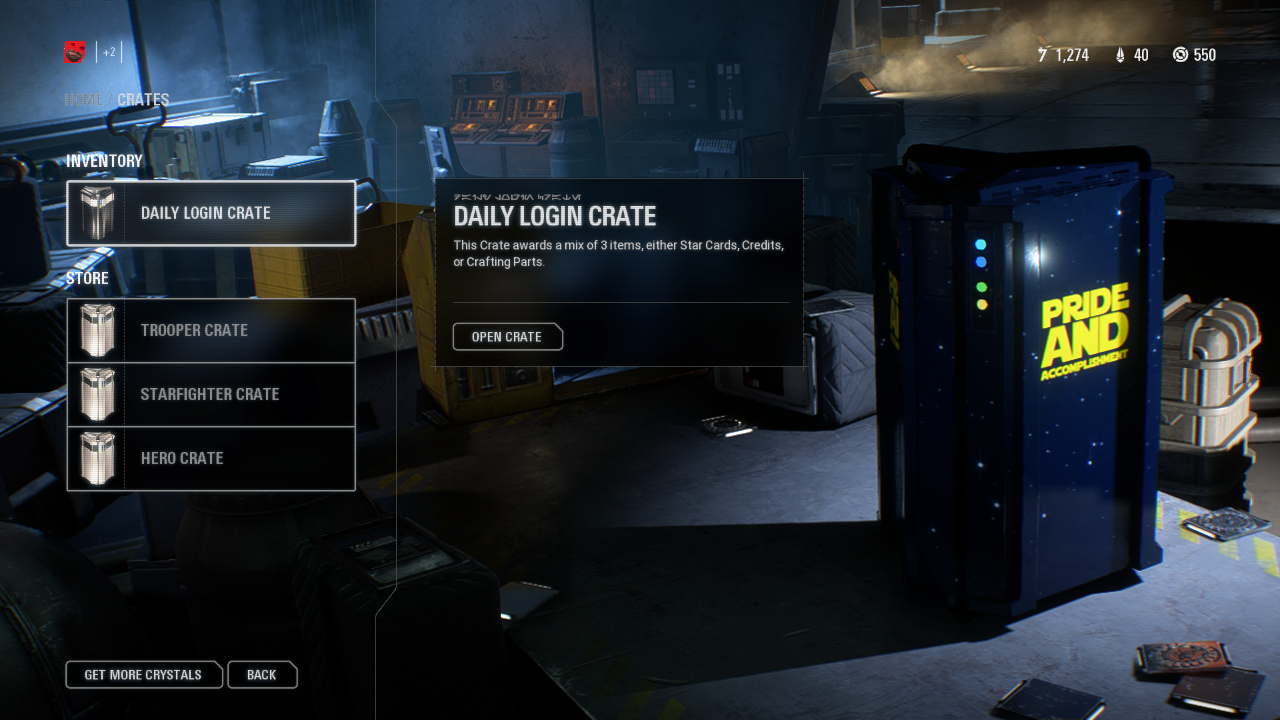
By late 2017 loot boxes were a familiar fixture in multiplayer games—they’d been around for a while, but Overwatch undoubtedly triggered a flashpoint in their spread. With the release of Star Wars: Battlefront 2 in November 2017, the public backlash was emphatically put into motion. So much so, that an official statement from EA defending its exploitative loot box system became the most downvoted message ever to be posted on the platform, with over 660,000 disapprovals. For a long time after, the words "a sense of pride and accomplishment" were thrown around gaming forums with typical acidic mirth. Not only did this huge public airing of grievances manage to make EA rethink its approach (one angered Reddit post amassed 182k upvotes), but it also initiated an industry-wide shift away from the randomised reward system. Especially when governments and law makers started to notice a resemblance to gambling. — Shaun Prescott
Mass Effect Andromeda gets memed into oblivion (2017)
Proof that no franchise, no matter how ostensibly important to a company's bottom line, is safe for good. There are some Andromeda apologists out there, but for the most part, EA's abdicated attempt at a new Mass Effect trilogy is remembered for the unconscionable bugs, uncanny facial animations, and some of the dumbest dialogue the once-great BioWare ever laid to tape. We can still see Sarah Ryder staring at us, with that weirdly menacing blank look of hers, every time we close our eyes. Well, that and the scary Assassin's Creed stares. — Luke Winkie
Ryzen puts AMD back in the game (2017)

The CPU space was feeling increasingly stagnant as the years rolled by. AMD's Bulldozer architecture left the gate with problems, and it never really recovered. By 2015, the only thing AMD CPUs had to offer were budget prices and a power hungry architecture—even a Core i5-2500K could beat most of AMD's FX-series lineup. Then AMD pressed the reset button and found Zen in 2017, and the processor wars reignited. AMD's Ryzen processors aren't always faster than Intel, but prices and performance are extremely competitive, and AMD will happily sell you twice as many cores for about the same price. And unlike Bulldozer, the individual cores don't suck. AMD's been on a roll ever since. — Jarred Walton
Conan Exiles introduces the dong slider (2017)
NSFW but Conan Exiles has an endowment slider. Big dong, little dong, big dong, little dong pic.twitter.com/MNgGsmlv32January 30, 2017
Survival game Conan Exiles has a dick slider. A slider for dicks. In character customization, you can adjust a slider to make your character's dick bigger or smaller. Such a simple thing, really, though our little story covering Conan's dick slider was our most-read news item of 2017. The tweet, containing a gif of the dick slider in action still gets a handful of RTs every week. Musician and animator The Weebl made a short music video out of it. I guess we all just love video game dongs. — Chris Livingston
Everyone wants that PUBG Chicken Dinner (2017)
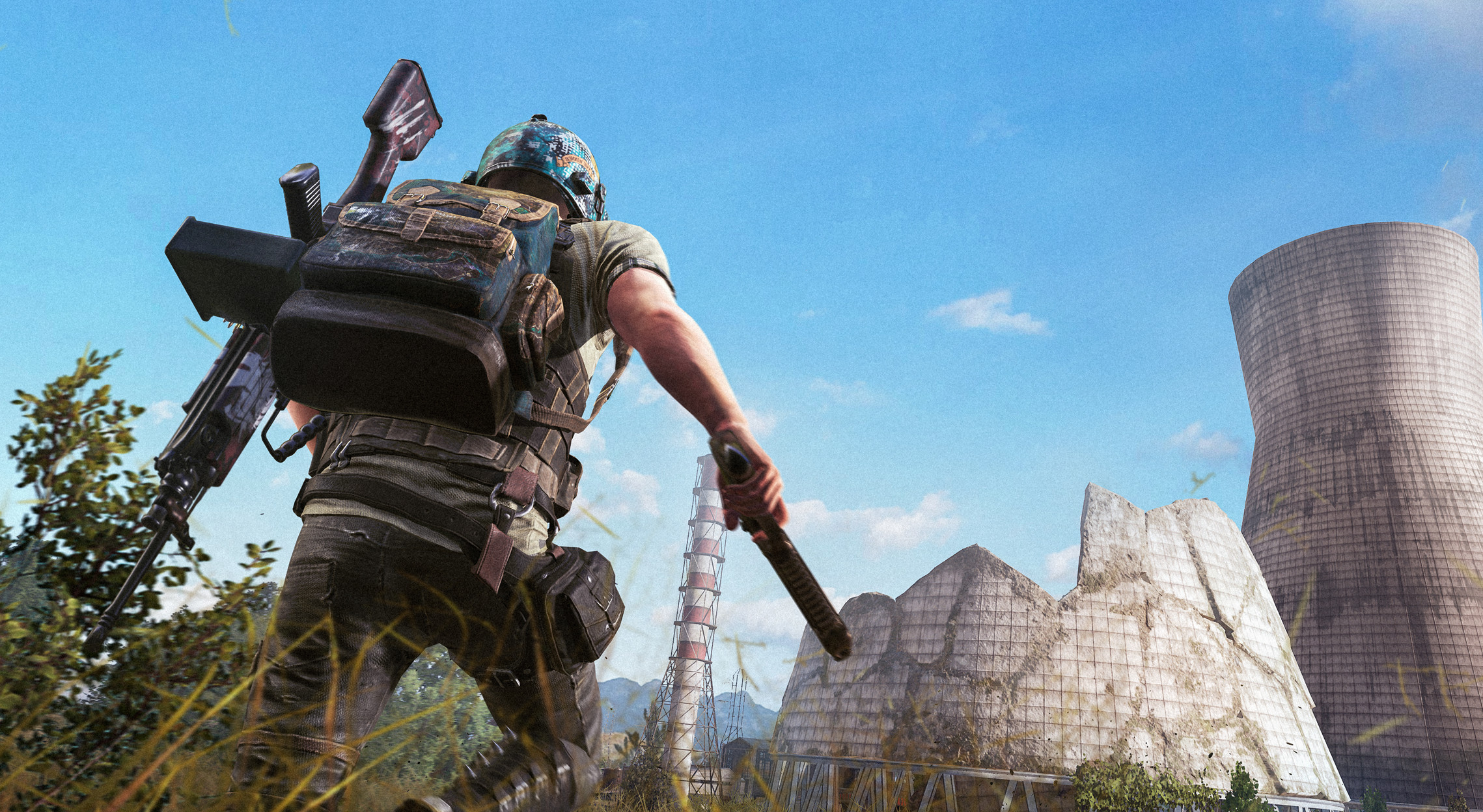
2017 was the moment where we found the single greatest feeling in multiplayer gaming: Being the sole survivor in a Battle Royale. Yes, Fortnite conquered the world and reshaped the industry in its image, but we have to pay homage to PlayerUnknown's Battlegrounds here. The white-knuckle, all-or-nothing, extremely-tiny-circle race to the finish line scratched an itch we didn't even know we had. You'll never forget your first, either. Even if it was spent cowardly crouching behind a jeep. — Luke Winkie
E3 loses some big publishers and opens up to the public (2017)
It feels like we've written a eulogy for E3 so many times over the years, and we wouldn't be surprised if the Granddaddy of All Stressful Trade Shows will be back at full strength with the incoming new consoles, but still, the past couple years have been weird. High-profile publishers, like Sony and EA, have scaled back their involvement during the June weekend, and Nintendo doesn't even hold a traditional press conference anymore. Organizer ESA countered by selling tickets to civilians, creating an environment full of exhausted journalists and jilted fans forced to wait in a two-hour line to play Assassin's Creed Origins. E3 needed to change. But the industry isn't sure if this is the right answer, and 2019's leak of the personal information of thousands of media attendees has not done it any favors. — Luke Winkie
Fallout 76 Collector's Edition comes with nylon bags (2018)
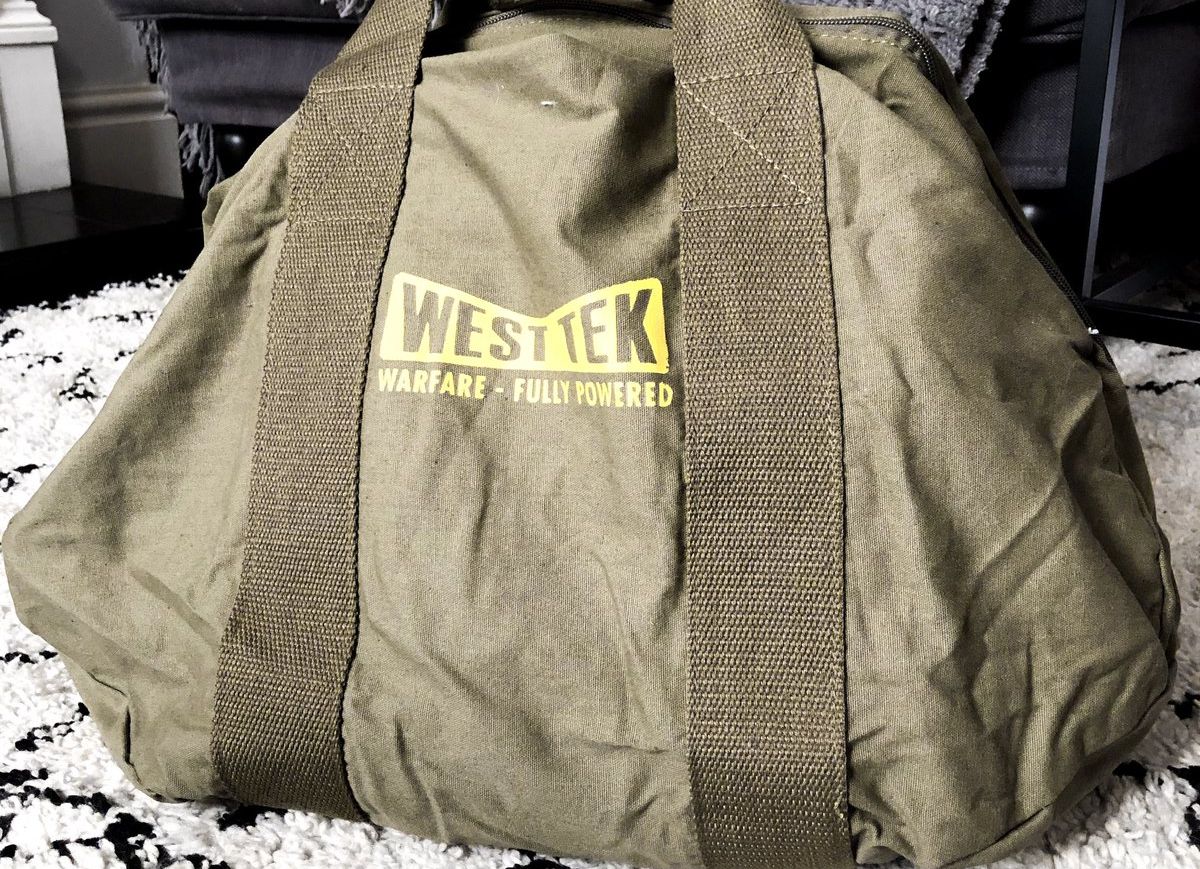
If someone is willing to pay $200 for a special edition of a video game, make sure you don't promise them a canvas bag but then send them a nylon one. It probably didn't help that the game itself, Fallout 76, didn't get a warm reception, but the bag fiasco, of all things, really blew up. Bethesda offered in-game currency to make up for it, which made people even more furious, and things got even worse when people registering on Bethesda's site for replacement bags had their data leaked. — Christopher Livingston
Ninja streams Fortnite with Drake (2018)
Ladies and gentleman, Drake is a gamer. For the majority of its life, Twitch represented this alien monolith in the mainstream consciousness. It was the thing your kids watched on their iPad in the back of the car; a force that summoned up nervous thinkpieces in the reactionary cable news corners of the internet. That is, until a winter night in early 2018, when Ninja and Drake were the top trend on Twitter. They weren't even doing anything weird. People play Fortnite duos all the time. But this cross-section between actual celebrity and gamer celebrity solidified this weird, gelatinous monoculture we live in now, where it's impossible to tell who's actually famous. Drake and Ninja have shared the Battle Bus, and now Ninja can reliably be found on Fallon. What a time. To be alive. — Luke Winkie
Steam opens the floodates to adult games (2018)
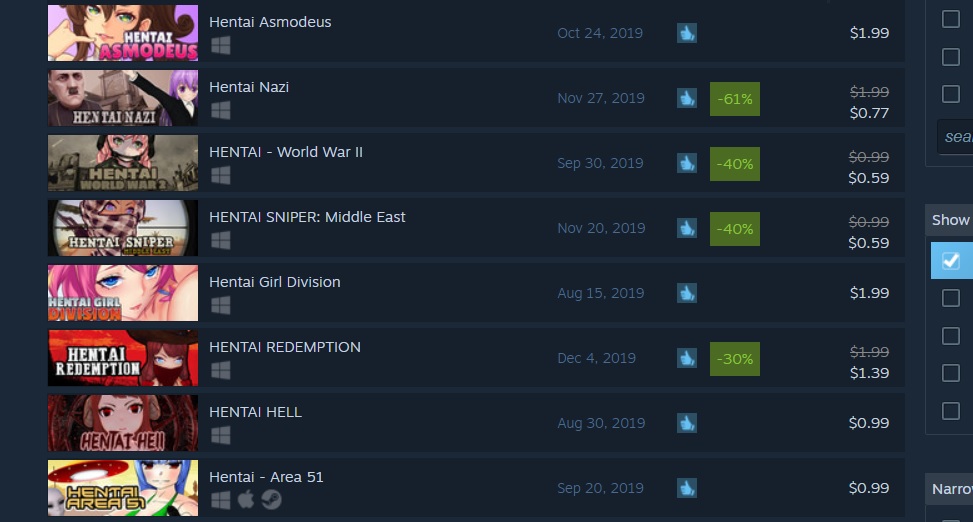
It's funny to think that a penis appearing in some Grand Theft Auto DLC was a big deal a decade ago. Smash cut to January 2017 and we're playing with dong sliders in Conan Exiles. Cut again to today, and Steam is full of hentai games following its 2018 policy change, which reduced its game submission policy to, essentially, 'just don't sell anything illegal or cross the line too far.' Once considered the gatekeeper of indie success on PC, Steam is a free-for-all, and now hosts a spectrum of games that runs from Hentai Nazi to Red Dead Redemption 2. — Tyler Wilde
Kotaku reports on the sexist culture at Riot Games (2018)
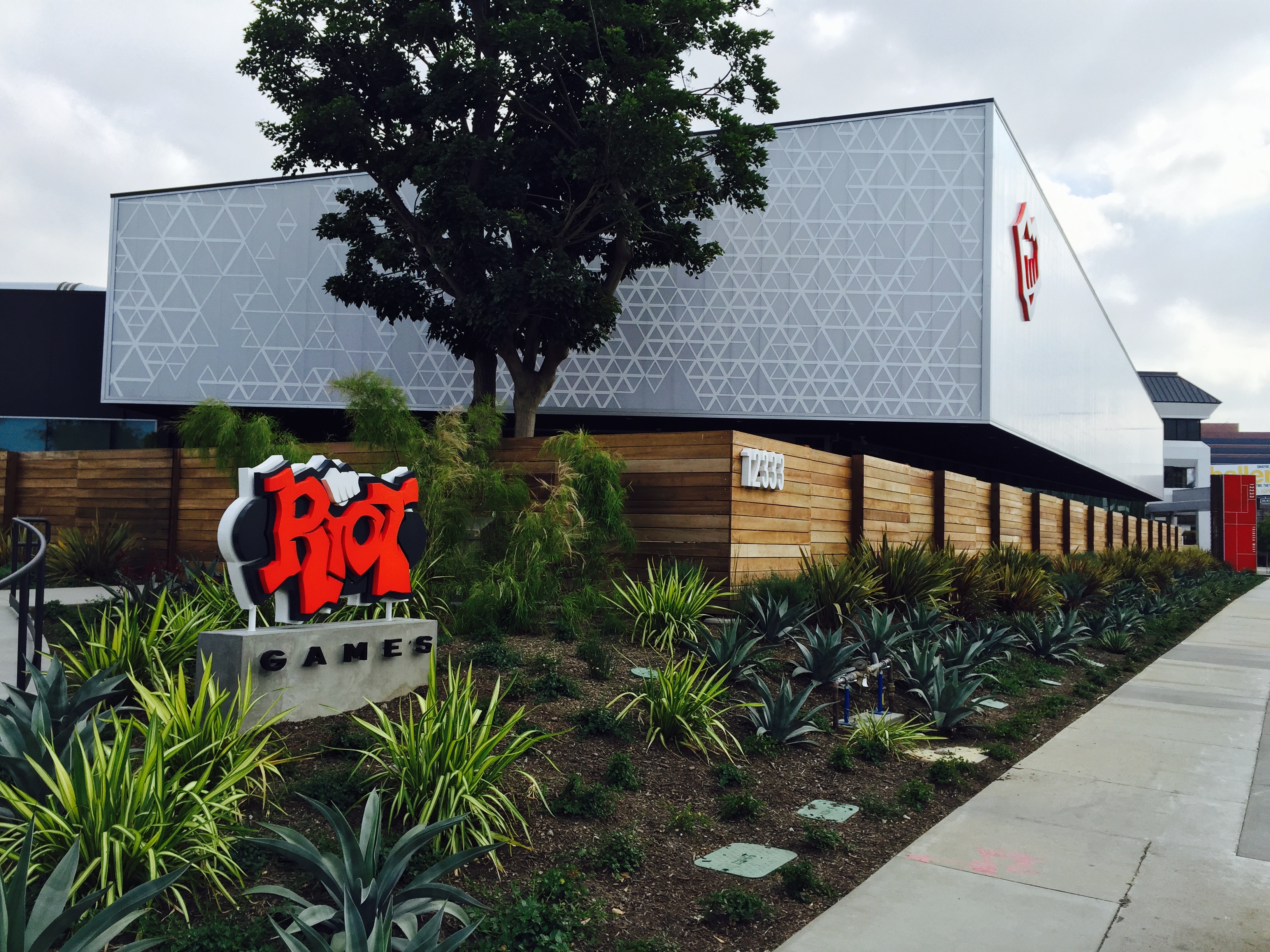
Riot Games recently settled a lawsuit and agreed to pay every woman who's worked at the company since 2014 from a $10 million fund. That never would've happened without the reporting of Kotaku's Cecilia D'Anastasio, who put a spotlight on the culture of sexism at Riot Games. Since that article went public, and after more of D'Anastasio's follow-up reporting, Riot has made sweeping changes to its policies and focus on discrimination and diversity. These issues remain very real in other parts of the tech and games industries, but the changes and lawsuit that resulted at Riot showed what a difference reporting and brave employees speaking out can make. — Wes Fenlon
Flossing happens (2018)
If you think flossing looks dumb, you're right. It's not the most elegant body movement. It looks like what I'd do if someone put me in a large bag and threw me in a lake. But if you think it looks dumb you're also probably above the age of 13. Flossing is the calling card for a new generation of gamers. An emote that caught fire in Fortnite's Season 2 and has yet to quit, flossing is the signal light that says to everyone in the schoolyard, oh yeah, I play. For a lot of young folks, flossing is cool and fun, and damnit, that's a nice thought. Who are we to make fun?
But those kids aren't adults and it'll be a minute before they control the world, so let's all indulge in this clip of Ninja utterly failing to get the crowd flossing with him in Times Square from last year's NYE celebration.
THQ Nordic gives a shoutout to Mark, does an AMA on 8chan (2019)
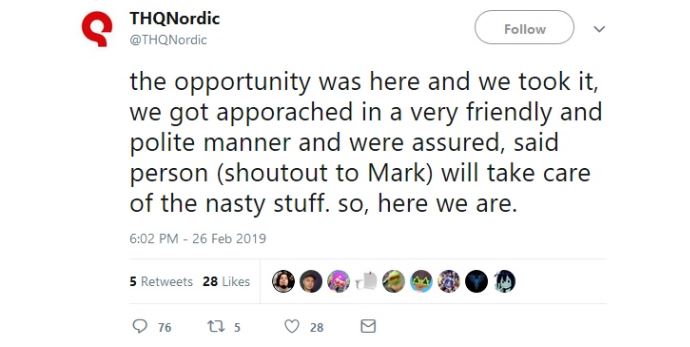
In February 2019, THQ Nordic decided to take part in an AMA. No problem there—AMAs are a very common way for game makers to connect and interact with their fans, and THQ Nordic had a rep as a very fan-focused publisher. But then, for some completely unfathomable reason, it opted to hold the AMA on 8chan, well known to pretty much everyone online (minus THQ employees, apparently) as "the toilet of the internet." It’s a reputation well-earned: The Washington Post report noted that it had "forums dedicated to pedophilia, suicide and concerted harassment or trolling," and in 2015 Google delisted it and issued a warning that it contained "suspected child abuse content." The AMA was an immediate and spectacular PR disaster that led to massive wave of criticism (except from 8chan, whose users were naturally thrilled), and the birth of a meme, the only good thing to come out of the whole mess.
Shortly after that attempt to shrug and move on, THQ Nordic marketing director Philipp Brock delivered a more full-throated apology in which he clarified that he does "not condone child pornography, white supremacy, or racism." (And boy, you know you've stepped in some shit when you're laying out that kind of mea culpa.) A followup explanation was entirely unconvincing, however: Brock said he didn't "understand the history and the controversy" of 8chan, despite engaging with 8chan users in a way that indicated that he very much did—including that shoutout to Mark for handling the "nasty stuff." — Andy Chalk
Blizzard bans Blitzchung from Hearthstone after pro-Hong Kong statement (2019)
The last piece of Blizzard's decade-in-the-making heel turn. How quickly a company can go from a miraculously talented studio, to a miraculously talented studio willing to nakedly reveal the shortcomings of their much-bandied-about progressivism at the slightest bit of pressure! You probably know the story. Hong Kong Hearthstone pro Blitzchung makes a pro-independence statement after winning a tournament, which causes Blizzard to immediately kowtow to the Chinese Communist Party by taking away his prize money, and banning him from competitive play for a year. Of course the situation was a bit more complicated than that, but it came off as an absurd, indefensible move; just another American conglomerate displaying a congenital lack of spine when China and money are on the line. Ironically, the controversy surfaced around the same time the NBA was in the middle of its own Hong Kong flap, prompting a surprisingly universal conversation in America about the ways our industries are taking Chinese dollars while looking the other way. — Luke Winkie
WoW Classic launches to massive demand (2019)
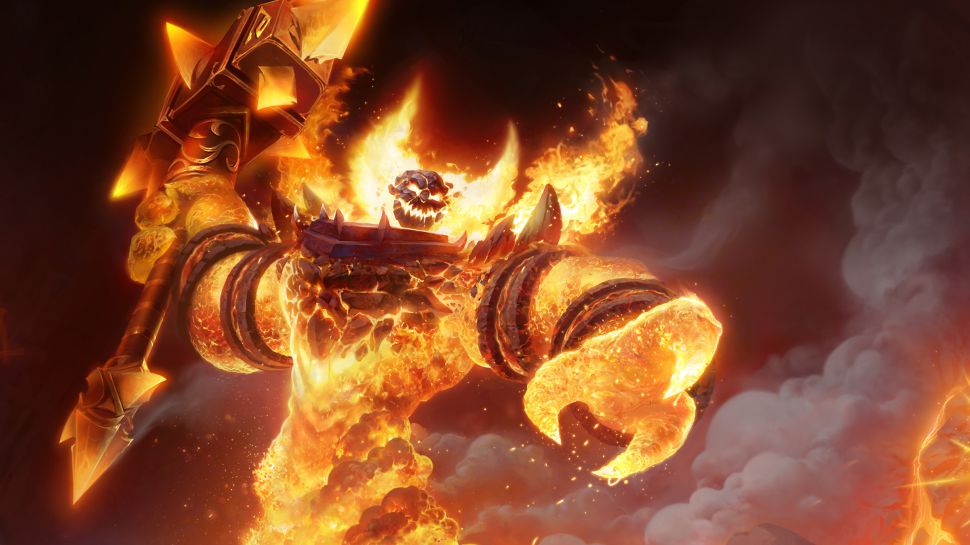
You think you want it, and you're right! World of Warcraft Classic represents one of the greatest about-faces in Blizzard history, and while the iron has cooled a bit since a ridiculous launch, it's living proof that nostalgia is the most powerful force in gaming. I was honestly emotional returning to a virgin Azeroth in 2019, unblemished by Deathwing or thousands of tiny quality-of-life improvements, so I could grind away at the same quests I did 15 years ago. For so many men and women who were weaned on WoW, Classic offered a glint of a time in our lives when everything was right in the world. — Luke Winkie
Sonic the Hedgehog gets a horrifying new look (2019)

The first trailer for the 2020 Sonic the Hedgehog movie got people talking. Specifically, they were talking about how Sonic looked like he eats live rats with his weird, toothy little mouth. The public mockery of Sonic's inexplicably off-model design resulted in a full rework of the character, who now looks much more like the Sonic we know. Personally, I don't have any interest in seeing a normal-looking Sonic get up to hijinks or whatever. Give me cryptid Sonic! (They just can't win.) — Tyler Wilde
Dr Disrespect livestreams from E3 bathroom, gets temporary ban from Twitch (2019)

I remember when Dr Disrespect walked by me at E3 and towards the public restrooms, streaming all the while. And yeah, he indeed brought the camera in. An act that would result in a permanent ban for the average Twitch user and—tiny sidenote here—actual criminal charges otherwise only resulted in a temporary ban for the platform's invincible superstar. If I sound mad, I am, but I'm even more baffled how well the brand is working despite the blurred lines between character and man. Guy Beahm has become the character, embodying the brazen ego of his former parody, and it's worked out just fine for the biz. Things are looking up for the bathroom streamer: Dr Disrespect has his own TV show on the way from Skybound Entertainment, a production studio co-founded by one of the creators of The Walking Dead. Hoo boy. Twitch has let loose a new kind of celebrity, one that haphazardly fires from the hip. —James Davenport
Fortnite shuts down for two damn days (2019)

To witness a fraction of the havoc climate change will wreak upon society, look no further than Fortnite's two days in the dark. In the final moments of Season 10, an in-game event depicted Fortnite's island imploding and getting sucked into a black hole. These things typically dump players back out onto a new, changed island. But this time things lingered on the image of a swirling black hole at the center of the screen.
Streamers went from excited to incredulous to outright angry. Hours passed. Night came. All of Fortnite's social media accounts showed the same black hole, the same constant hum and swirl. Without warning, no one could play one of the biggest games in the world for almost two days. A stunt that would ruin other studios made Fortnite the subject of cable news talk shows and the reason plenty of impatient kids punched their TVs. Epic can afford to piss off its entire playerbase and shut off microtransaction revenue at will just to get attention. Let that sink in. — James Davenport
Valve's card game Artifact is absolutely DOA (2019)
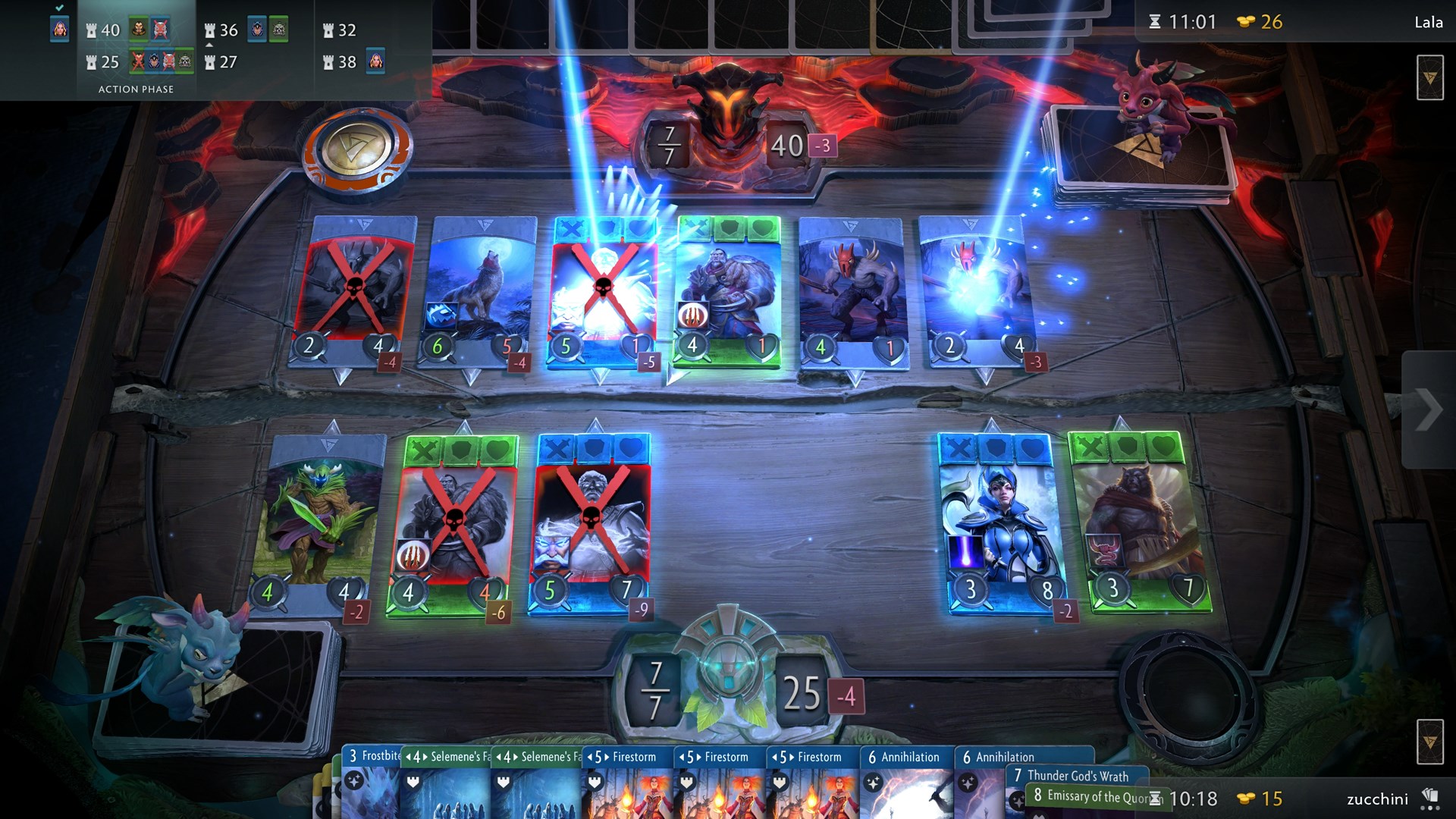
Copying Hearthstone's success seemed like a no-brainer. Blizzard's card game entered an industry with almost no competition, and when a heavyweight like Valve geared up for a retort, we all braced for a year's worth of Pokemon vs. Yu-Gi-Oh! schoolyard debates in digital form.
Obviously, that didn't happen! Despite bringing on Card Lord Richard Garfield as designer, and despite it being literally the first new Valve game in five actual years, Artifact's playerbase shattered upon impact. Within months, the game's Twitch channel was rife with porn. It was a humiliating defeat, and raised some serious questions about whether Valve still had its fastball as a maker, rather than a vendor. — Luke Winkie
Randy Pitchford leaves his porn at Medieval Times (2019)

There remain some unanswered, perhaps unanswerable, questions as a result of a nasty lawsuit that kicked up between Gearbox's Randy Pitchford and its former lawyer this year. 1) Who puts porn on a USB stick in 2019? 2) Why would you keep sensitive Gearbox documents on that same USB stick? 3) Who leaves a USB stick full of porn and high-level company information at Medieval Times, a restaurant where the table is battle?
Yes, the controversy that realistically could've doomed Borderlands 3 centered around a loose bit of internet smut at a Renaissance Faire, which honestly sounds like the premise of the worst CSI episode ever. Please Randy, for the love of god, spend the next decade being normal? — Luke Winkie
Valve announces a new Half-Life (2019)
Yes, it's a VR exclusive. Yes, it exists so Valve can continue to push its own in-house VR tech. Yes, it took Campo Santo off another, tantalizing project, and yes it probably won't fill the gaping, increasingly insulting void left after the cliffhanger of Episode 2. But still, holy shit dude there's a new game with the Half-Life name on it. In typical Valve-y fashion, the announcement came out of nowhere at the end of the year, and the expected reception from fans is up in the air, given how battered the Half-Life faithful are these days. But what a profoundly unexpected development to close out the decade. — Luke Winkie
Indie game Devotion pulled from Steam over China Easter Egg (2019)
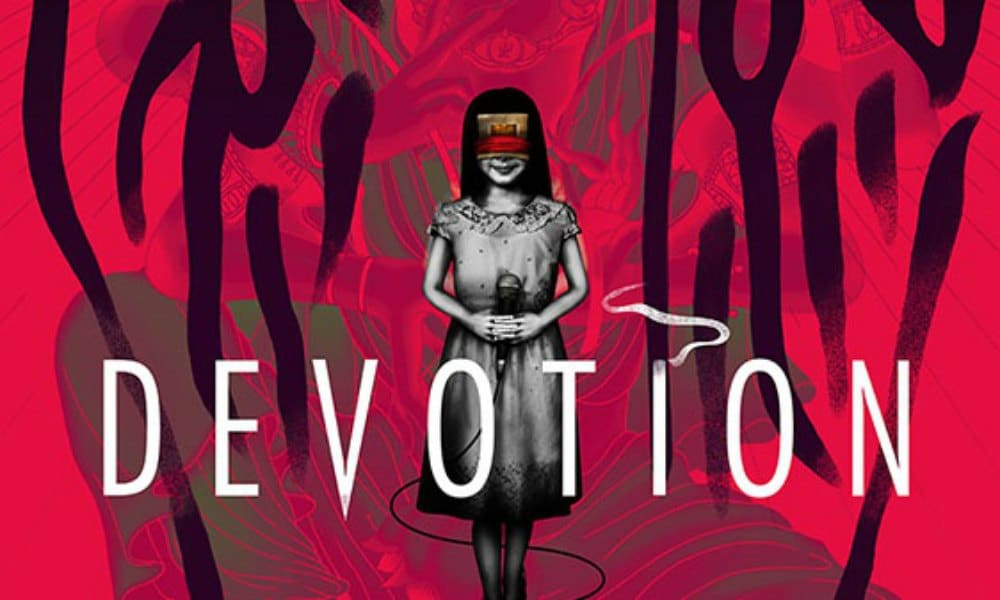
It's rare that a game vanishes completely from the internet—especially one that only just released. But such was Devotion's fate after players discovered a small bit of text comparing China's president to Winnie the Pooh (a controversial meme). Chinese players began review bombing Devotion en masse, eventually drawing the attention of the Chinese government. It quickly scrubbed Devotion from Chinese social media and search results and would later revoke the business license of its Chinese publisher. The backlash was so severe that developer Red Candle Games pulled Devotion from Steam. It hasn't returned, and it likely never will. Devotion's ill-fated launch is a chilling reminder of how quickly global platforms like Steam can become cultural battlegrounds. And people still think games aren't political? — Steven Messner
The Epic Games Store goes after Steam with controversial exclusives (2019)
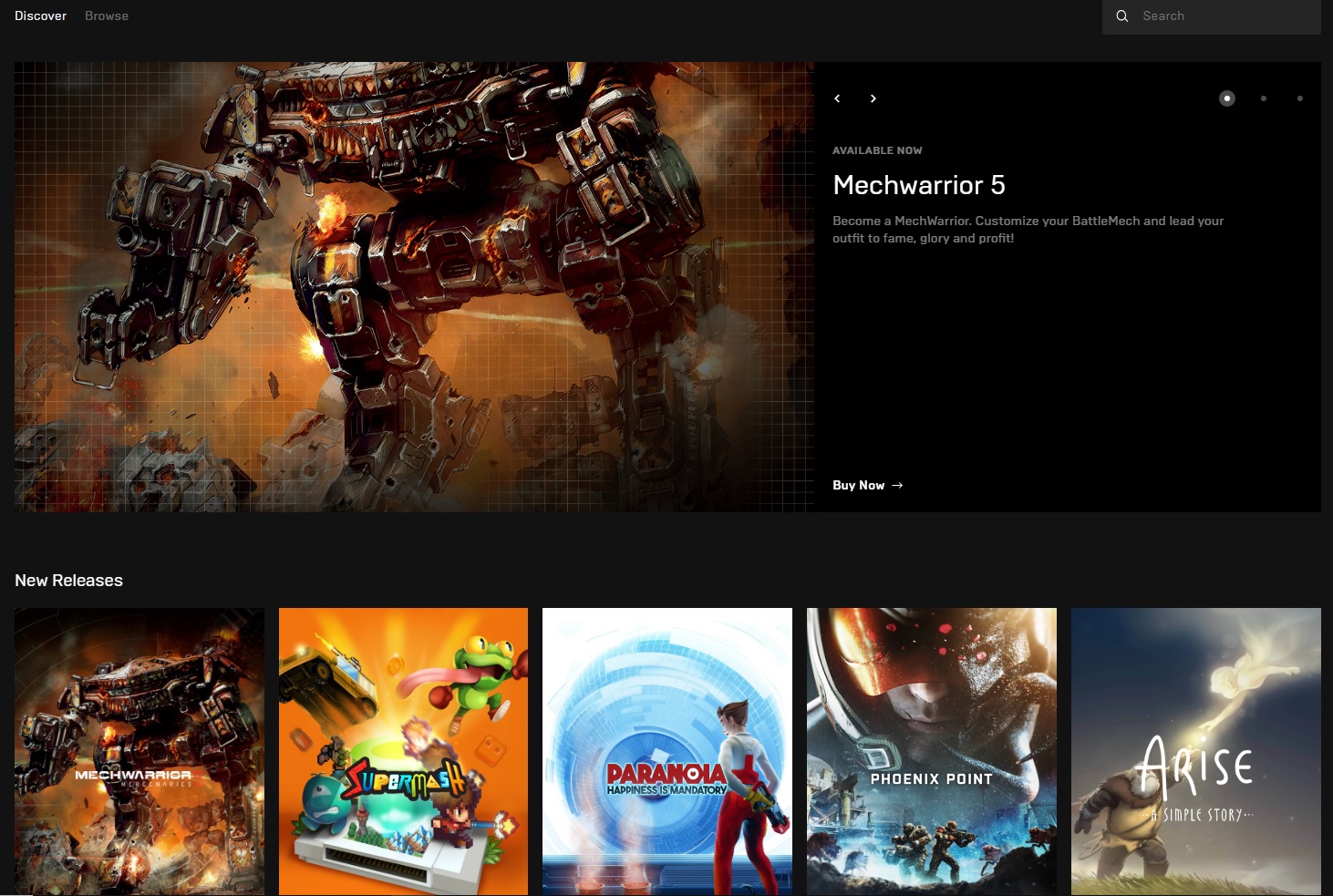
Epic Games announced its store during The Game Awards 2018, touting its 12 percent revenue split versus Steam's 30 percent. It capitalised on Valve reducing the cut for bigger games, which had rubbed indies the wrong way. The store launched a bit bare bones days later, but the addition of weekly free games has been very welcome. It looked poised to shake things up, and it absolutely has, but mostly the discussion has become a swirling vortex around the subject of exclusivity. Games previously announced for Steam, like Metro: Exodus, were suddenly getting timed exclusive deals on the Epic Games Store. While the main criticism was that some of these games had been advertised on Steam and even sold on the platform, there is now a very vocal group who decry all Epic exclusives, though it's unlikely they're going to stop. — Fraser Brown
Geralt takes a bath (2015 - 2019)
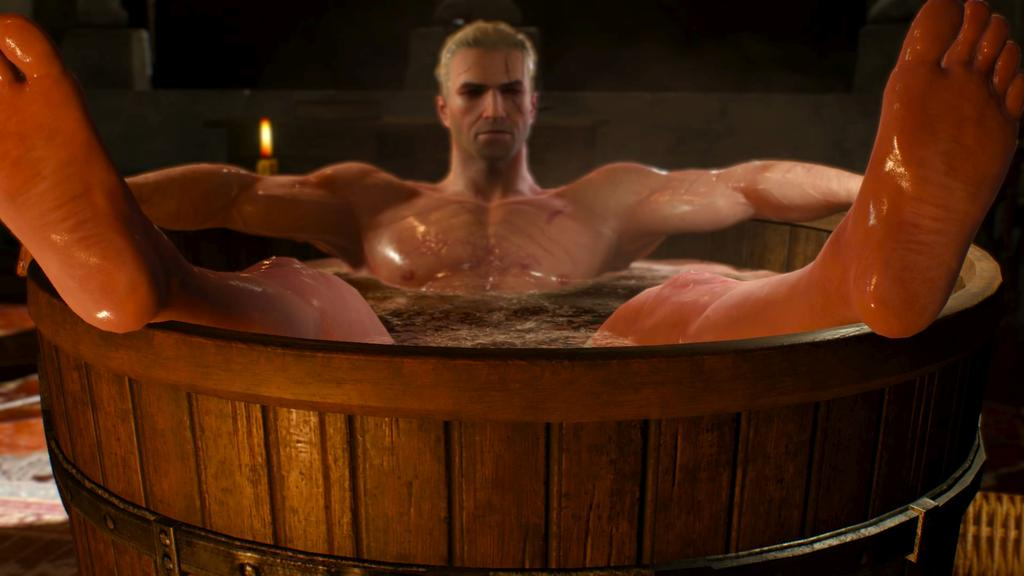
Is there a more iconic image in all of PC gaming than of The Witcher 3's protagonist luxuriating in the tub? Yes, almost certainly. But somehow that one screenshot has become inexorably linked with PC Gamer, to the point that the game's developers sent us a memorial to its legacy. It's mostly my fault.
The image was originally taken by our web editor, Tom, who was playing the game ahead of release. As there was a lot of Witcher news to write at the time, I started embedding it in news posts to amuse myself. A small number of people started complaining about the picture, so I kept posting it. And tweeting it. And sometimes hiding it as a subliminal frame of it in otherwise innocuous images. It was a fun little in-joke—an act of petty persistence against anyone who, for whatever reason, didn't want to keep seeing a half-naked Geralt, shimmering feet and all.
Since then, we've been incredibly responsible and understated in our use of the image. Actually, no, we've been the opposite. For a while I thought the ultimate punchline would be the official statue, or the cosplay calendar (which, yes, I do own). But no, the ultimate punchline came when Netflix released the trailer for the Witcher TV series that featured its very own bath scene. Er, if you're reading this, Henry Cavill, I'm sorry. But not really.
The collective PC Gamer editorial team worked together to write this article. PC Gamer is the global authority on PC games—starting in 1993 with the magazine, and then in 2010 with this website you're currently reading. We have writers across the US, UK and Australia, who you can read about here.


